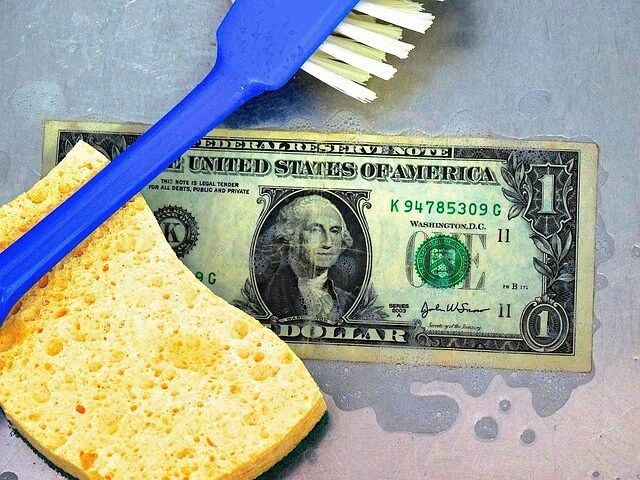If you’re tired of washing dishes by hand or you’re ready to upgrade the dishwasher you currently have, then the idea of a new, reliable dishwasher has been kicking around in your head. Dishwashers are one of the most convenient modern-day appliances and can add a lot of time back into your day. You can load most dishes without pre-washing them, and you can find plenty of dishwashers on the market that are energy-efficient, using very little water to run and saving you money in addition to time.
But which dishwasher should you choose? Here are a few considerations.
What’s Your Budget?
Dishwashers come in a range of prices. For example, a Kenmore 14013 Built-In Dishwasher, considered an “everyday dishwasher,” is approximately $300. A GE Appliances 24” Under-the-Sink Dishwasher is about $500. It includes features like:
- PowerScrub
- Seven wash cycles
- Two dry cycles
- Deluxe silverware basket
- Food disposer
On the higher end is the Kenmore Elite 18” ADA Dishwasher (approximately $750), which features:
- Six cycle options
- Economy settings
- Sanitizing Rinse Cycle
- Delay Start
Ask yourself if you’ll use the bells and whistles included in the most expensive dishwashers. While a few extra features are nice if your budget allows it, consider looking for a dishwasher that will give your dishes a sparkling clean for the price you can afford. Head to a store or sit down in front of your computer with a budget in mind, so you can avoid overspending.

What Kind of Space Are You Working with?
You’re probably picturing a dishwasher as a standard size (about 24 inches wide and 35 inches high), but they’re available in a range of sizes. And one is likely to fit your space!
Measure your kitchen and the space for your new appliance before you shop in stores or online. This is easy to do if you’re replacing the appliance, but it’s especially important if you’re having one installed for the first time. You may have to give up some storage space, so know what you’re willing to sacrifice before you shop.
Also take the size of your family into account, as well as how many dirty dishes you make in a day. Do you want room in your dishwasher for all of them? You could need a bigger appliance. If you only have a few dishes by the evening, a smaller one will probably do.
Do You Care About Energy Efficiency?
There are plenty of energy-efficient dishwashers on the market now, and a green choice is a great option. It uses minimal water, which helps the environment and your water bill!
To find a green dishwasher, look for the Energy Star label, which is a sign of efficient quality. Energy Star dishwashers can be a little more expensive upfront but may save you money in the long-run. Looking at the EnergyGuide label makes it easy to compare one dishwasher to another and can give you more insight into savings.
The CEE rating is also a valuable resource. To qualify for this rating, a dishwasher must be energy-efficient, using less than 270 kWh per year and 3.5 gallons of water each cycle. If you’re considering replacing your dishwasher, take your current appliance’s age into account and compare the number of gallons it uses.
Important Dishwasher Features
If it’s your first time buying a dishwasher in a while (or ever), you may be stunned by all the features today’s dishwashers can come with! Some of these features make dishwashers more expensive, so it’s important to know your budget and the options before you shop.
Cleaning Power and Features
Not all dishwashers clean dishes in the same way. While one may pre-rinse for you, another will require you to rinse dirty dishes in the sink before they’re loaded. Do you mind rinsing by hand, or would you prefer a heavy scrub setting in your dishwasher? The model you choose should take your preference into account.
Also make sure the models you’re considering have the cycles you’d like, including air-dry and other cleaning settings.
Noise Level
Before purchasing a dishwasher, look into its noise level. It probably has the decibels listed right on its information page. One of the quietest examples is a Miele at 38 dB, which is just louder than a normal conversation.
Most dishwashers today are insulated, but if your machine will be located close to your bedroom or to a sensitive neighbor, you may want to opt for one that is practically silent.
Self-Cleaning Capabilities
A self-cleaning dishwasher empties the filter for you and will even clean its own interior! Stainless steel tubs can look better and are designed to resist stains on the exterior.
Drawers or No Drawers
A drawer dishwasher consists of two smaller dishwashers that open up like drawers. These offer many benefits:
- Save room in a kitchen that’s short on space.
- Use one dishwasher to store your clean dishes and another to load your dirty ones – This is great if you’re tired of putting dishes away.
- Wash small loads.
Reliability
No two dishwashers are alike, but reliability should be a top priority when you look for your new appliance. According to a Consumer Reports survey of readers, Bosch is the clear winner for the most reliable dishwasher brand. The Bosch 300 Series is a top pick of wirecutter. This dishwasher is quick, easy to use, efficient, and stainless. If you don’t like the look of one, there are 17 variants of this model.
Right behind Bosch on the Consumer Reports survey is Whirlpool and Miele. All three received the honors of being less repair-prone than others in their market.
The most important things you can do when it comes to adding a dishwasher, or any new appliance, to your home is research to get you the most bang for your buck. Before you settle on one:
- Compare your choices.
- Read reviews.
- Ask friends what they like.
- Consult a plumber.
- Shop around, both online and offline.
Are you looking to install your new dishwasher? We can remove your old appliance and securely fit your new purchase in place. And if your new dishwasher is part of a kitchen remodel, we’re happy to lend our expertise! Call 972-395-2597 to set up an appointment that works for you.

















